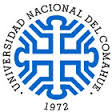El artículo tiene como objetivo dar cuenta de la política securitaria desarrollada por el Partido Estado neuquino en el contexto posterior al asesinato del docente Carlos Fuentealba durante la represión de una protesta de la Asociación de Trabajadores de la Educación de Neuquén (ATEN) en abril de 2007. La hipótesis central del trabajo es que las políticas de seguridad propuestas en el primer mandato de Jorge Sapag (2007-2011) se vinculan con la necesidad del Movimiento Popular Neuquino (MPN) de recomponer el orden social y mantener su hegemonía, al mostrarse como “garante dela paz social” en aquel marco de gran convulsión social. Desde nuestro punto de vista, esto explica el hecho de que el plan de seguridad de Sapag se diferencie del de su antecesor, Jorge Sobisch, al poner el acento en el respeto de los derechos humanos y las garantías constitucionales. La metodología utilizada en este trabajo es cualitativa y está basada en el análisis de entrevistas en profundidad, documentos oficiales planes de gobierno, leyes, boletines oficiales, entre otros y diarios de sesiones legislativas.
This article aims to account for the security policy developed by the Neuquén Party-State in the context after the murder of teacher Carlos Fuentealba during the repression of a protest by the Association of Education Workers of Neuquén (ATEN) in April, 2007. The central hypothesis of this paper is that the security policies developed during the first term of Jorge Sapag (2007-2011) are linked to the need of the Neuquén Popular Movement (MPN) to recompose the social order and maintain its hegemony as a "guarantor of social peace" in that framework of great social turbulence. From our point of view, this explains the fact that Sapag's security plan differs from that of his predecessor, Jorge Sobisch, by emphasizing respect for human rights and constitutional guarantees. The methodology used in this work is qualitative and is based on the analysis of in-depth interviews, official documents –government plans, laws, official bulletins, among others–and diaries of legislative sessions.


